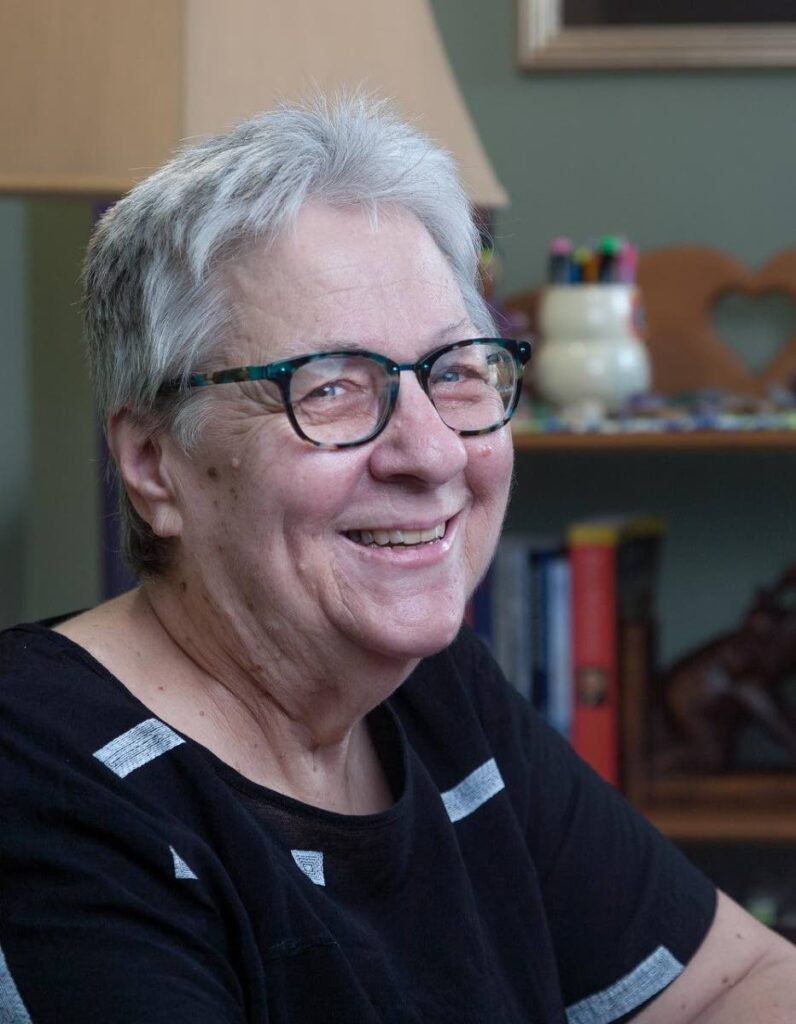Read to discover yourself

DEBBIE JACOB
WHEN I chose Prince Harry’s autobiography Spare and Young and the Restless soap opera star Eric Braeden’s autobiography I’ll Be Damned to listen to after eye surgery, I had no idea I had stumbled on one of the best and one of the worst autobiographies I have ever read or listened to.
Surprisingly, Braeden’s story was the brilliant one; Harry’s story was the disappointing one. Braeden, arguably the best-known US soap opera character (Victor Newman) offers a story filled with insights that transcend his life. Harry’s book is a self-indulgent, pity fest.
Together, both autobiographies, read by the authors, inadvertently offer invaluable lessons about what to do and what not to do when writing a memoir or autobiography. Those lessons are easily applied to those personal essays students must write for entry into US universities.
Harry’s Spare felt like the angry essays my students once submitted for their personal essays. I would say, “Good. You got that out of your system. Now go back and write about what you learned from those experiences. Dig deep. Find the meaning.”
Those revised essays got students into good universities.
I wanted to see Harry dig deeper too. We get that the paparazzi are awful and that he faced hardships and challenges, but I wanted to hear how those experiences shaped him – not how they made him flee his royal life. This could have happened in many places in his story.
Harry’s experiences in the army presented an opportunity to dig deep, and I had many questions. What was it like for a Spare to be in command like he could never be anywhere else in his life? How did he bridge that divide between the monarchy and the subjects?
If Harry were a reader, I think he would have recognised what he had to do with his story. His confessions about not reading I found cringeworthy.
Harry and Braeden’s stories both deal with the loss of a parent. Harry lost his mother, Princess Diana, when he was 12. I wanted to hear more about how this made him resilient. Instead, Harry writes mostly about his poor decisions, drug and alcohol abuse.
On the other hand, Braeden, who lost his father at 12, writes about how that inspired him to imagine making his father proud. Braeden reveals his father had joined the fledgling Nazi party before Hitler targeted the Jews. He had to reconcile his love for his father with his father’s decision. In this, Braeden presents the grey areas of history. Many people like his father had joined the Nazi party during Hitler's pre-Holocaust days when the fuhrer presented economic policies that saved Germans from humiliation and starvation.
His story is a chilling reminder of how ordinary people get sucked into extremism and the difficulties – if not impossibility – of extracting themselves from turning political tides. It also explores the prejudice left behind for the children of parents who made that decision.
Braeden’s honest, witty, profound autobiography strings together meaningful anecdotes that create a vivid picture of Braeden's life. His anecdotes match those my mother told me about growing up in Nazi Germany as a displaced immigrant. Her stories and his were of people walking with wheelbarrows full of money to buy a loaf of bread and people digging through farmers' harvested fields for leftover potatoes.
Many autobiographies string together anecdotes just to show events in someone’s life, but Braeden uses them to illustrate character. He presents himself as a flawed, but empathetic person, confident and determined to overcome adversity.
While his autobiography also serves as a chronicle of how he turned a soap opera role into an iconic character, it's also the story of how he used that character on a world stage to make important statements against prejudice – particularly anti-Semitism.
Harry wrote his story too early in his life when anger was too raw. His bitterness constantly gurgles to the surface. His anecdotes, trite and often cringeworthy, are mostly mean-spirited rants serving no purpose but to criticise his family. Sure, plenty people will gush over the bacchanal, but Harry’s Spare just scratches the surface when it comes to finding the meaning in life.
Good autobiographies and memoirs offer important insights into our own lives. When my eyesight permits, I can’t wait to read memoirs like Love the Dark Days by Ira Mathur and The Stranger Who Was Myself by Barbara Jenkins, our own Trinidadian writers.
Read other people’s stories to discover more about yourself.


Comments
"Read to discover yourself"